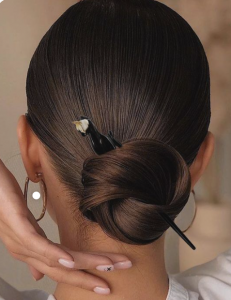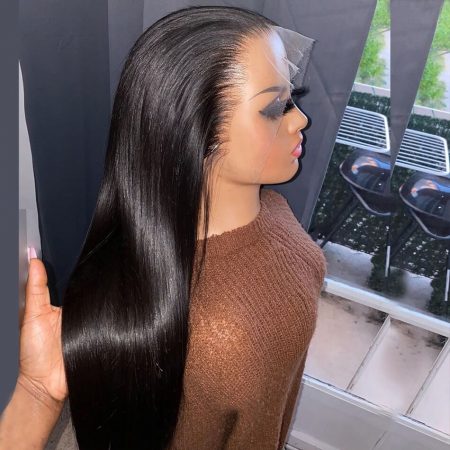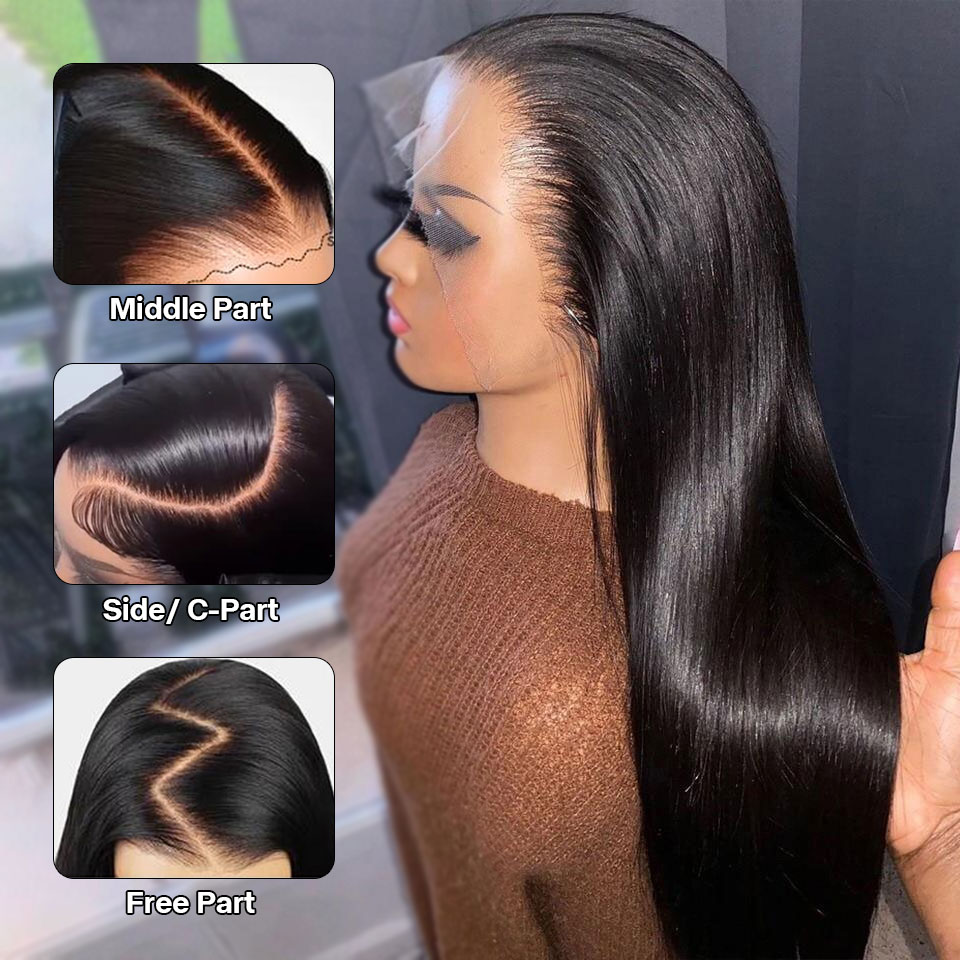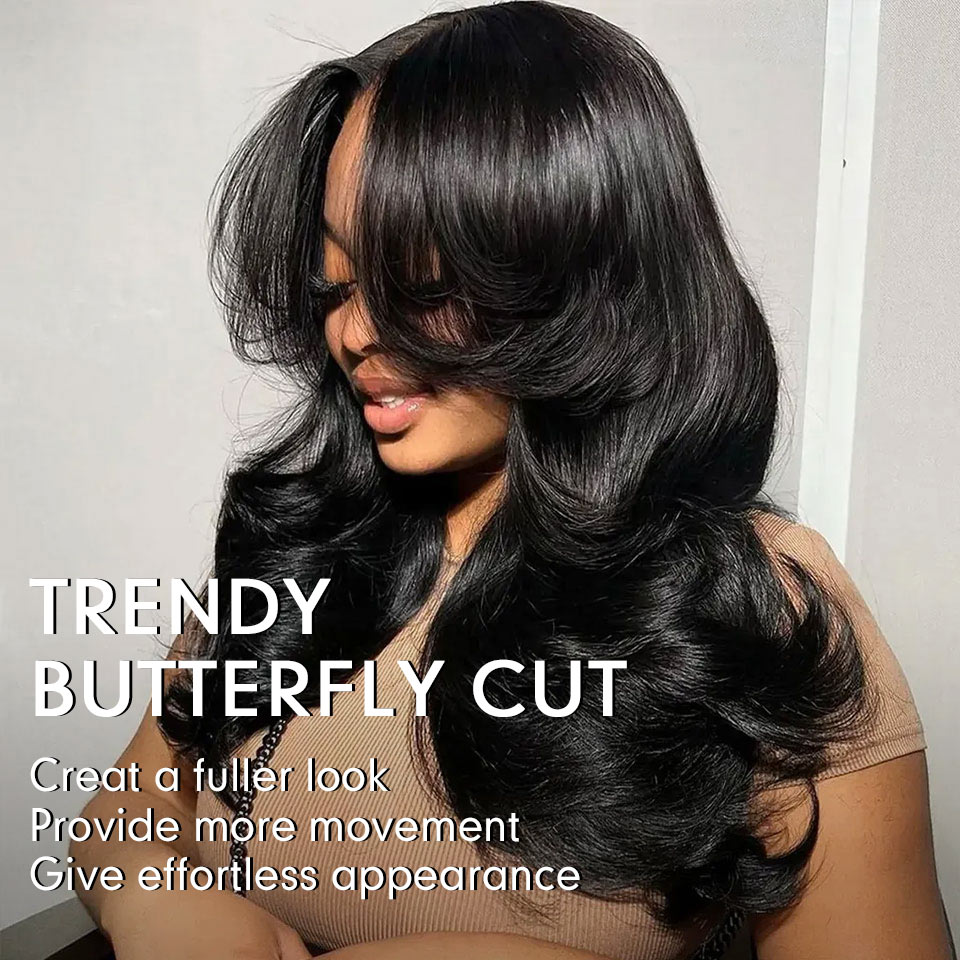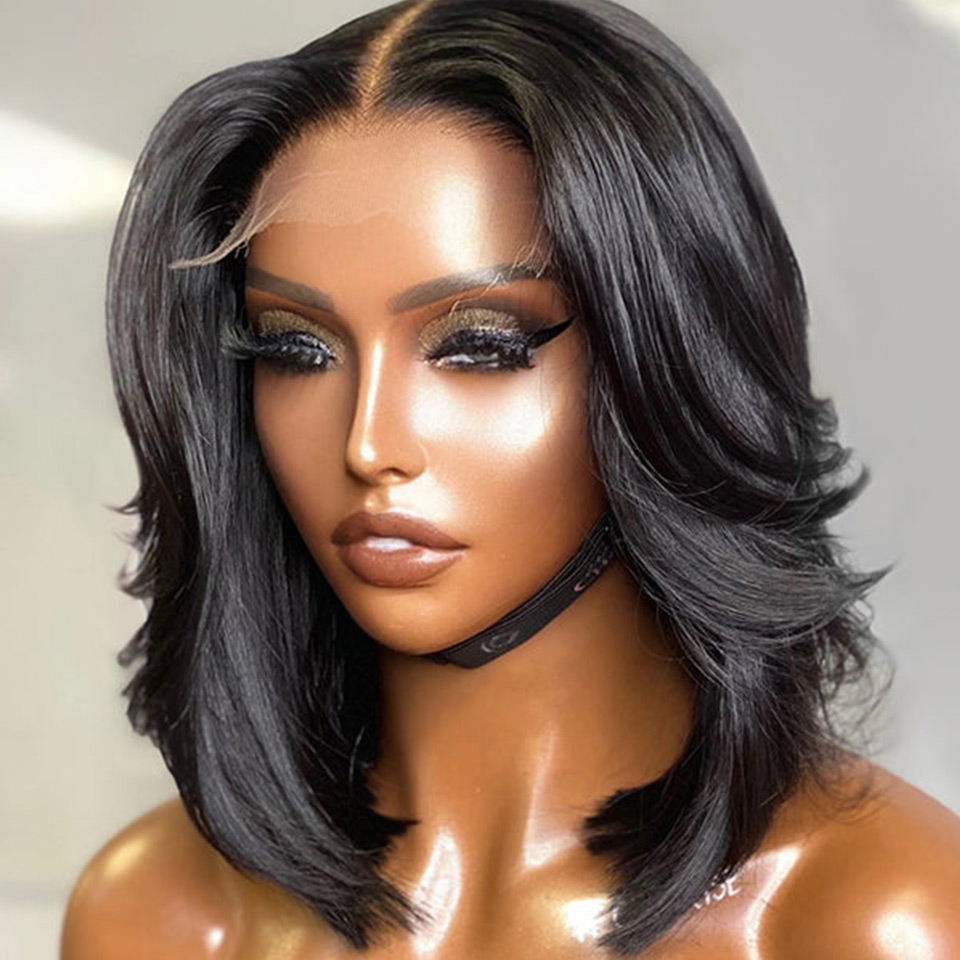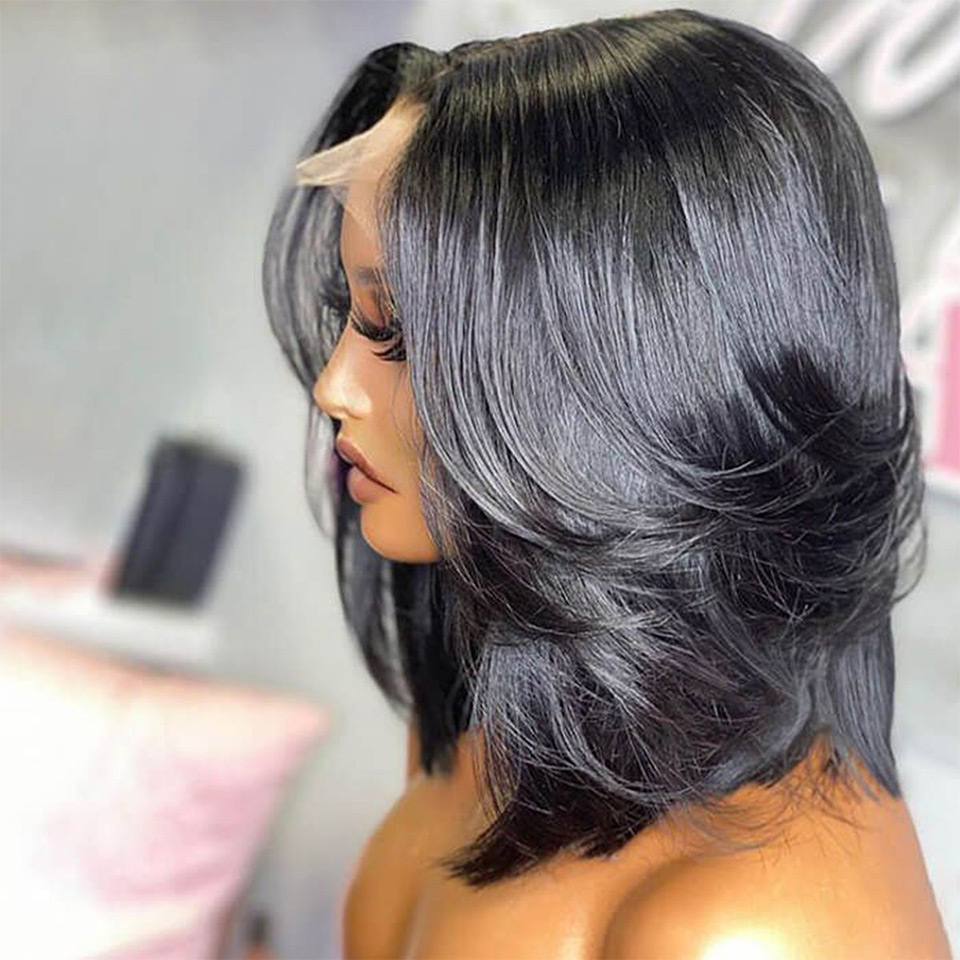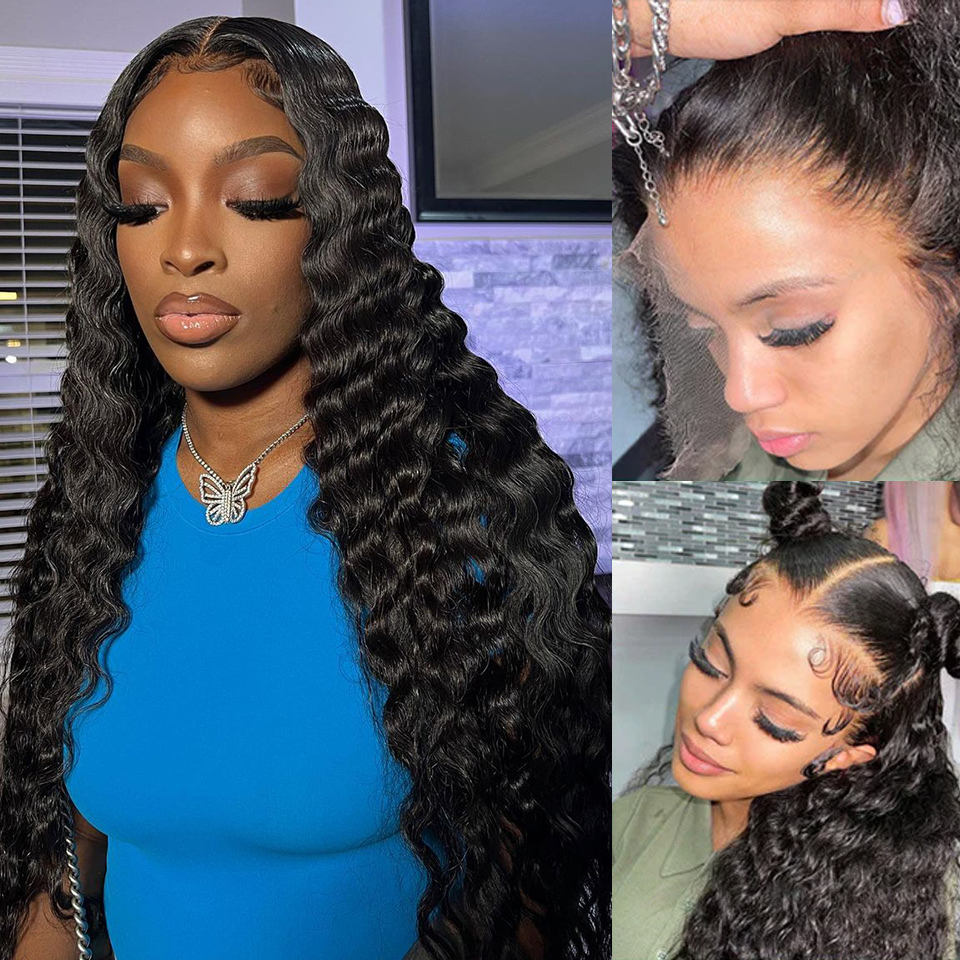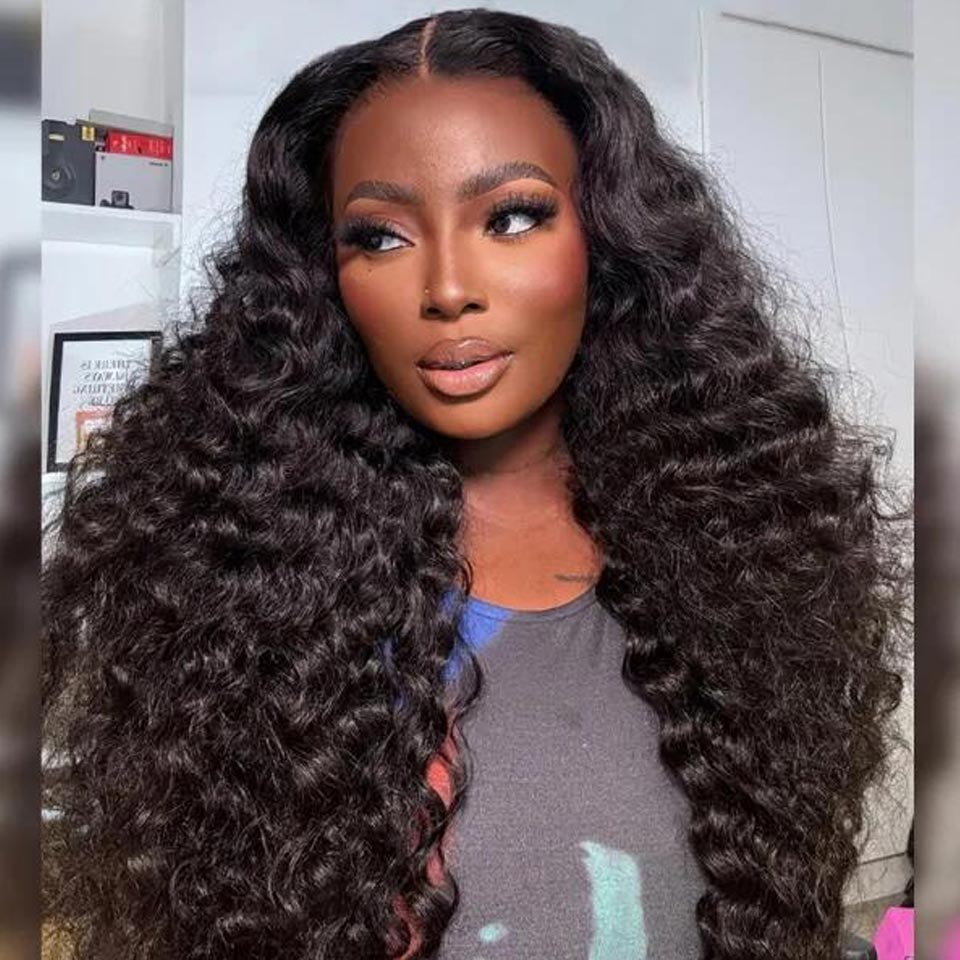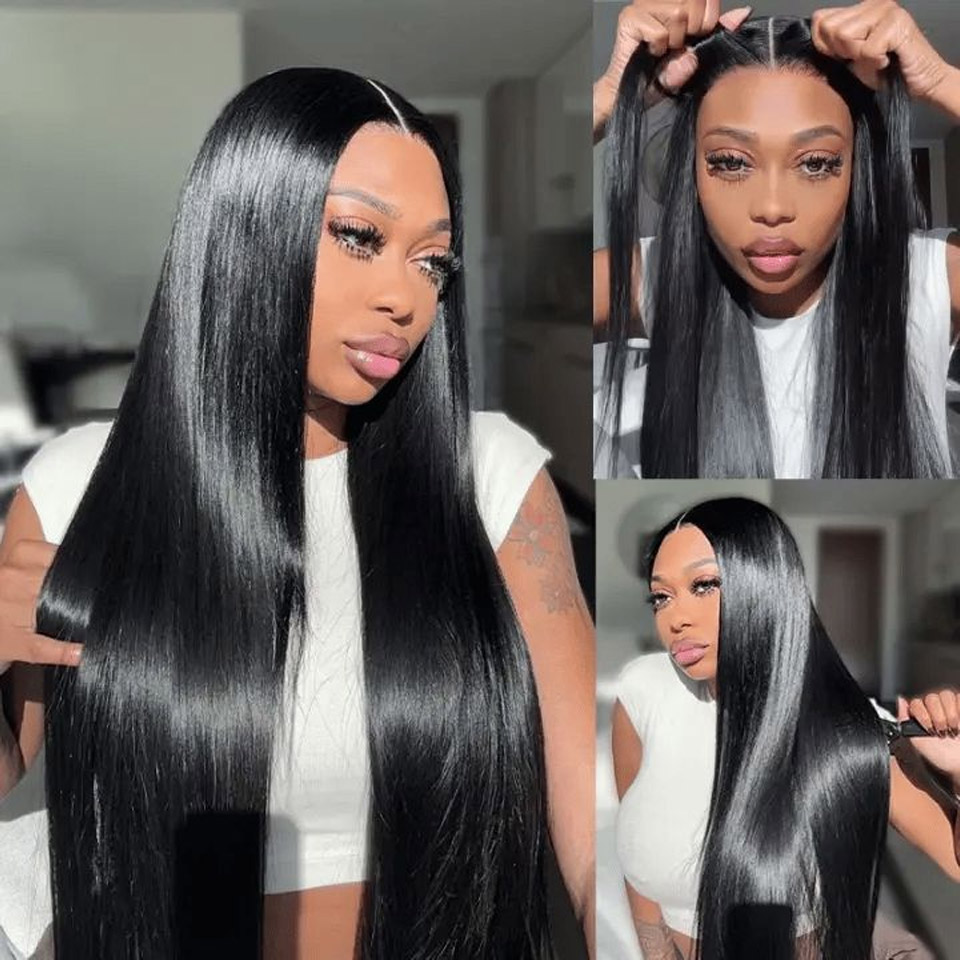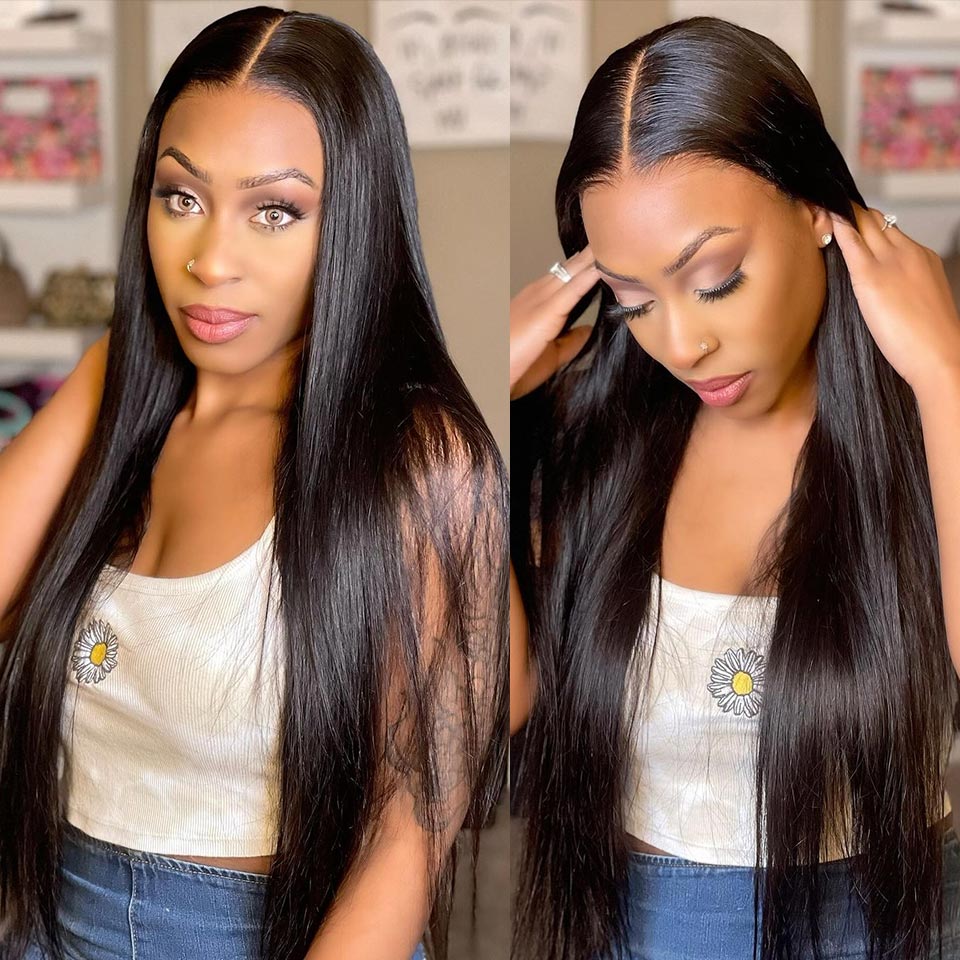With various wig textures available, deep wave wigs have gained significant attention for their ability to add volume and glamour to any look. However, many wig wearers often question whether they can wet their deep wave wigs without damaging them. In this article, we will delve into the topic and explore the possibilities and considerations when it comes to wetting deep wave wigs.
Deep Wave Wigs.
Deep wave wigs are a popular choice among wig wearers due to their unique and eye-catching curl pattern. These wigs offer a glamorous and voluminous look that can instantly transform your hairstyle. Understanding the characteristics, construction, and maintenance of deep wave wigs is essential to ensure that you make the most of this versatile hair accessory.
Characteristics of Deep Wave Wigs.
Deep wave wigs are known for their distinctive curl pattern, which features deep and well-defined waves that flow from the roots to the ends of the hair. The curls are typically tighter and more pronounced compared to other wavy or curly wig textures. This creates a dramatic and voluminous effect, giving the appearance of luxurious, cascading waves.
Can You Wet a Deep Wave Wig?
The question of whether you can wet a deep wave wig often arises because people want to know if they can achieve different hairstyles or manage the wig in a particular way. The good news is that deep wave wigs can indeed be wetted, allowing for versatile styling options.
Washing the Wig:
Like any other wig, deep wave wigs require regular cleaning to maintain their appearance and hygiene. To wash a deep wave wig, you can wet it by immersing it in a basin of lukewarm water. However, it’s crucial to use a gentle shampoo specifically formulated for wigs or for curly hair. Carefully massage the shampoo into the wig, focusing on the roots and avoiding excessive rubbing or tangling. Rinse the wig thoroughly with lukewarm water to remove any shampoo residue. Afterward, gently squeeze out the excess water and let the wig air dry or use a low-heat setting on a hairdryer.
Restyling:
One of the advantages of wetting a deep wave wig is the ability to restyle it according to your preferences. When wetting the wig, the curls may temporarily loosen, making it easier to reshape or redefine them. You can use your fingers or a wide-toothed comb to achieve your desired look. Additionally, you can apply styling products such as mousse or curl-defining creams to enhance the curls or create different textures.
Heat Styling:
While wetting a deep wave wig provides a temporary restyling opportunity, it’s important to note that excessive heat styling can damage the wig’s fibers or lead to the loss of its curl pattern. Therefore, it is generally advisable to avoid using high-temperature styling tools like flat irons or curling wands on wet deep wave wigs. If you wish to alter the wig’s appearance, it’s recommended to wait until the wig is completely dry before using any heat styling tools.
What kind of wet hairstyles suitable for summer?
When it comes to summer, wet hairstyles are a great way to stay cool while still looking stylish. Whether you’re heading to the beach, attending a pool party, or simply want a low-maintenance hairstyle for the hot weather, here are some wet hairstyles that are perfect for summer:
Wet Bun: This classic hairstyle is effortless and keeps your hair off your neck and face, making it ideal for hot summer days. Gather your wet hair into a high or low ponytail and twist it into a bun. Secure it with bobby pins or a hair tie. You can also add a stylish hair accessory like a headband or scrunchie to enhance the look.
Beachy Waves: Embrace your natural texture by creating beachy waves with wet hair. Apply a texturizing spray or sea salt spray to your damp hair and scrunch it gently. Allow your hair to air dry or use a diffuser attachment on a low-heat setting to speed up the process. The result is effortless, tousled waves that give you a relaxed summer vibe.
Wet Braids: Braids are versatile and can be worn wet or dry. Opt for a classic French braid or Dutch braid with wet hair to achieve a sleek and polished look. Another option is to create a fishtail braid or a messy braid with damp hair for a more relaxed and bohemian style. Add some hair gel or styling cream to keep the braid in place and prevent frizz.
Wet Ponytail: A wet ponytail is a simple yet chic hairstyle that is perfect for summer. Start by combing your wet hair back and securing it with a hair tie at your desired height—whether it’s a high ponytail, mid-height ponytail, or low ponytail. Apply a small amount of hair gel or mousse to keep the hair sleek and smooth.
Wet Pixie Cut: If you have a short pixie cut or cropped hairstyle, embracing the wet look can give you a cool and edgy appearance. Apply some styling gel or pomade to your wet hair and comb it through for a sleek and polished finish. This style is low maintenance and perfect for summer.
Wet Top Knot: The wet top knot is a stylish and practical hairstyle for summer. Gather your wet hair into a high ponytail and twist it into a knot at the top of your head. Secure it with bobby pins or a hair tie. This hairstyle keeps your hair off your face and neck, making it a great choice for hot and humid days.

What should I notice when I have a wet hairstyles with my deep wave wig?
When styling a wet hairstyle with your deep wave wig, there are several important considerations to keep in mind to ensure the longevity and appearance of the wig. Here are some key points to note:
Avoid Excessive Manipulation: While wetting your deep wave wig allows for restyling, it’s crucial to minimize excessive manipulation. Wet hair is more vulnerable to damage, and continuous combing or brushing can lead to tangling, shedding, or loss of the wig’s curl pattern. Instead, use your fingers or a wide-toothed comb to gently detangle and shape the curls without exerting too much force.
Use Water-Based Styling Products: To achieve and maintain the wet look, use water-based styling products such as gels, mousses, or curl-enhancing creams. These products provide moisture and hold without causing buildup or weighing down the wig. Avoid using oil-based or heavy styling products as they can make the hair appear greasy and cause the curls to lose their bounce.
Apply Products Sparingly: When applying styling products to your deep wave wig, remember that less is more. Start with a small amount and distribute it evenly throughout the hair, focusing on the mid-length to the ends. Applying too much product can weigh down the curls, disrupt their natural pattern, or create a sticky residue.
Allow Sufficient Drying Time: It’s essential to allow your deep wave wig to dry completely before removing the wet hairstyle or attempting any additional styling. Wet hair is more susceptible to frizz and damage, so be patient and let the wig air dry naturally or use a low-heat setting with a diffuser attachment. Avoid excessive heat from hairdryers or direct sunlight as they can compromise the wig’s fibers and texture.
Avoid Heat Styling on Wet Hair: Deep wave wigs should not be subjected to high-temperature heat styling tools, such as flat irons or curling wands, while wet. Wet hair is more vulnerable to heat damage, and using hot tools can lead to irreversible changes in the wig’s curl pattern or cause the hair to become brittle. If you wish to style the wig further, ensure it is fully dry before using any heat styling appliances.
Proper Storage and Care: After removing the wet hairstyle from your deep wave wig, store it properly to maintain its shape and prevent tangling. Gently detangle the hair with a wide-toothed comb and place the wig on a wig stand or mannequin head. Avoid storing the wig when it is still wet, as this can promote mold or mildew growth. Instead, allow it to air dry completely before storing it in a cool, dry place.
Be Gentle When Detangling: Wet hair is more prone to tangling, so it’s important to be extra gentle when detangling your deep wave wig. Start from the ends of the hair and work your way up to the roots using a wide-toothed comb or your fingers. Avoid using a brush or narrow-toothed comb, as this can cause unnecessary tension and potentially damage the wig’s curls.
Protect the Wig’s Cap and Lace: If your deep wave wig has a lace front or a cap made of delicate material, take extra precautions when wetting the hair. Avoid getting excessive water or styling products on the lace or cap, as this can weaken the adhesive or cause discoloration. Consider using a shower cap or wrapping the lace area with a plastic wrap to protect it during the wetting process.
Avoid Rough Towel Drying: After washing or wetting your deep wave wig, refrain from vigorously rubbing it with a towel to remove excess water. This can lead to friction, frizz, and potential damage to the wig’s fibers. Instead, gently squeeze out the water with a soft towel or microfiber cloth by lightly patting or blotting the hair.
Opt for Air Drying Whenever Possible: Air drying is the gentlest and most recommended method for drying your deep wave wig after wet styling. It allows the hair to regain its natural texture and bounce without subjecting it to excessive heat or manipulation. If you’re short on time and need to speed up the drying process, use a diffuser attachment on a low-heat setting to minimize potential damage.
Protect the Wig from Chlorine and Saltwater: If you plan to wear your deep wave wig for swimming, take precautions to protect it from chlorine or saltwater. Before entering the pool or ocean, wet your wig with fresh water and apply a leave-in conditioner or a hair protectant spray. This creates a barrier that helps to prevent the wig from absorbing excessive chlorine or salt, which can cause dryness and damage.
Regular Maintenance and Care: Wet styling can impact the longevity of your deep wave wig, so it’s crucial to follow a regular maintenance routine. Gently cleanse the wig when necessary, use appropriate products designed for curly or wavy hair, and deep condition the wig to restore moisture and maintain its luster. Proper care will ensure that your deep wave wig remains in optimal condition, even after wet styling.
Wrap Up.
The ability to wet a deep wave wig largely depends on the type of wig you have. Human hair deep wave wigs can generally be wetted with caution, following appropriate care guidelines. Synthetic deep wave wigs, on the other hand, are not designed to be submerged in water. Instead, consider alternative methods such as using specialized wig products to achieve a wet look. Regardless of the type of wig, proper maintenance and care are crucial to keep your deep wave wig looking its best. By understanding the characteristics of your wig and following the recommended guidelines, you can confidently style and enjoy your deep wave wig for many occasions.







